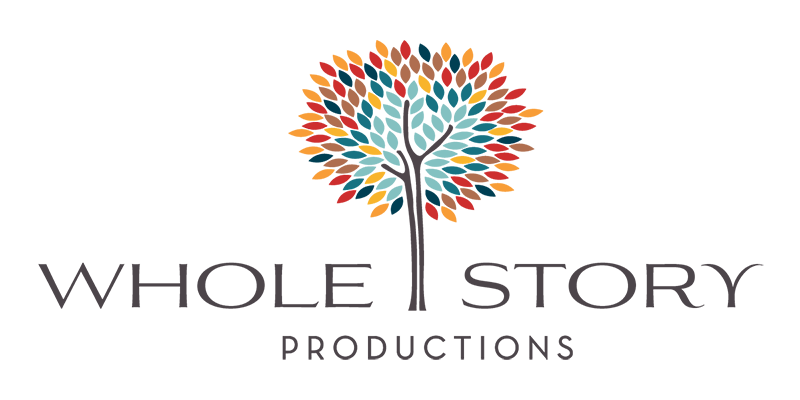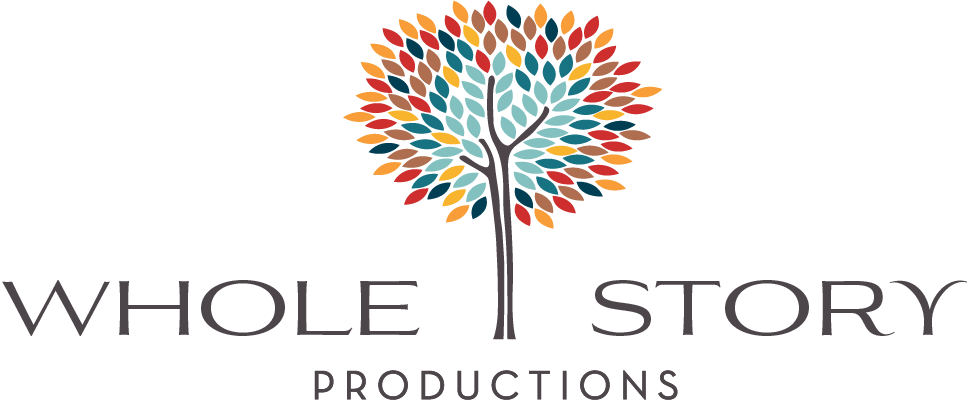The UHNW Institute
About Team Board of Directors Advisory Board Faculty Resource Library Join Family Wealth Report Member Logi
Contribution from Lori Z. Roux, Whole Story Productions
Family stories matter. In fact, they are one of the most powerful learning tools for children and future generations. Yet, these stories, and distant memories of family members, are often at risk of being forgotten. That’s why sharing a family’s history, including individual family members’ journeys and passions, is vital for the vibrancy of current and future generations.
Parents and grandparents relive their lives, accomplishments, and impact on the family’s business or wealth. The rising generation gains a greater appreciation for who they are by hearing these stories and learning about the values that guided them. Ultimately, it enriches their understanding and appreciation of their family values and creates spiritual capital.
Families of affinity are strong. Their shared experiences, common values, and appreciation for their members and life stories are fundamental to their well-being. Family strengths and weaknesses are reality. They exist through the generations, and each family member has a story—as does the family itself.
For example, when there’s a family business, there is likely much to share. It’s not uncommon for a family enterprise to face challenges as the generations move up in the ranks and succession issues arise. Planning for, and balancing, family and business entail important decisions. Much can be learned from the evolution of the business, its leadership and stewardship, and the experiences of those in the business. It can have a lasting positive impact on future generations.
The power of a video documentary
Using video to document your family history creates a timeless experiential learning experience. Just imagine the rising generation seeing, hearing, and getting a physical sense of the family patriarch, matriarch, or relatives they never met.
Stories of the trailblazers and groundbreakers can support decision-making and future planning in areas such as education, business, or philanthropy. They provide a means to educate rising generations about the fabric and character of their ancestors, by showing how they responded to challenges and the experiences that ultimately shaped their character, values, and vision for the family. What’s more, telling these stories through a video documentary can help the rising generation build self-esteem and self-respect while enhancing their self-awareness.
A family history documentary provides a bridge for future generations to learn and understand the past. Accounts of immigrants and businesspeople, along with their successes, failures, and philanthropic priorities, are invaluable to chronicle. Anecdotes and articles, legends and folktales, contribute to creating a comprehensive family history.
Imagine a dynastic circle where the first generation has passed away and no one has recorded any history, stories, or wishes. The directives of G1 are unknown, providing no insight as to skills or talents, experiences or proficiencies, priorities or passions. All of this lost, unnecessarily. The impact this makes on G2 and beyond is profound, although most likely unrecognizable till those questions arise: What were Grandma’s passions? Why was Grandpa so successful?
Consider the opposite scenario. The family matriarch is turning 80, and she wants to recount and preserve the story of how she lived the American Dream. Specifically, she wants her children, grandchildren, and future generations to understand how she and her parents and grandparents escaped their war-torn homeland by immigrating to the United States. She also wants them to learn about how they settled in the Midwest and started a small business that ultimately evolved into a large global enterprise.
Capturing the matriarch’s stories through a video documentary unearths the depth and richness of her family lineage, including the roots of a family tree that stretched and broadened from one generation to the next. Because of her foresight, her story, values, and wisdom can be passed down on video for the extended family and future generations to learn from.
Steps to creating your family story in video
Where to start? Consider these four steps:
1. Define the impact you want to make and the stories to be told. The process should focus upon working intensely with all members of the family to ensure that the stories are not only collected, but capture the five critical elements of “who, what, when, where, and how?”
2. Engage your family. It begins with a family meeting, untangling the generational tree and prioritizing the major topics. During this time, discuss the family, friends, and business associates that can help clarify the history, timeline, and narrative based on specified priorities. With ongoing communication, you should begin to see a storyline that will drive crafting the interviews, which will guarantee the coveted stories are told.
When engaging with your family, be sure to take the time to share your values, beliefs, and principles with family members. This experience, more than most, will help to clarify those priorities—to designate the tales you want told, the ones that created the memories, that connect you to one another, that make you different than anyone else.
3. Establish a process for collecting the stories. Such a process includes an array of work streams, such as coordinating logistics for the most efficient travel, conducting personal interviews, and gathering key scenic and historic footage. Collecting existing photos, film, and video from assorted family members who act as “historians” that help create the perfect backdrop is also vital.
One of the basic tenets of creating a legacy project is knowing the right questions to ask. This, in and of itself, must be strategic and methodically well arranged. It’s critical to the process. In many families, there is the “go-to” person that has all the stories, historical as well as offbeat.
4. Consider enlisting the help of a professional documentarian to pull it all together. Many turn to a professional family documentarian to help with the entire initiative. A good producer will appreciate family and history, while also allowing the family and its members to become involved in and facilitate some or all of the interviews. A good producer will have an open mind throughout the process and assess how the family, history, and documentary objectives fit together. This is a collaborative effort, so establishing this working relationship is key.
Finding the right producer entails thorough research in these areas:
a) The producer’s background and experience. Ask to view examples of family documentaries along with referrals you can speak with.
b) The supporting crew. Seek to understand the nature of the crew that would be involved in your project, as well as their roles and responsibilities.
c) The overall process and timeline. Ask for a project plan with key milestones so that you know what to anticipate during the experience. As the production continues, expect designated family members to review the video through its progression, examining each segment. They will need to confirm that the timeline of the story is accurate, verify photos are of the right people, and check graphics for spelling and accuracy. You can expect to be involved in music selection and helping connect the pieces of the puzzle. When all the elements are in place, the final edits are made for a cohesive family documentary.
Finding the right person to work with doesn’t have to be difficult. In recent years, more and more companies have been working specifically with families in documenting legacies. Many groups are listed through advisors and their companies, and working through family offices and their consultants can prove fruitful. Many in this space know each other and can make recommendations. Experts in the family office space are becoming more and more aware of this service and are steering families to the discipline that they desire.
Alternative Formats
With the evolution of the digital age, text and audio are still viable options for documenting a family history. A book or memoir has traditionally been the means for presenting such documentation, and may include photos, drawings, and even letters. It can also include countless details, allowing for specifics that might otherwise be eliminated in other formats. A book is a chronological reference and can be referred to for assorted family testimonials.
Audio recordings are quite popular—everything from long format to podcast-style chapters. This format allows for easy sharing to family members in an instant, with the ability to upload to the cloud quickly and simply. Audio recordings add to the essence of the project, with the option of hearing the voices and emotions of family members that have participated. Audio also gives the listener a moment in time to use their imagination to decipher the message and create their own images of where the story is taking place and what it looks like.
Costs vary for creating a family documentary, depending on the format, e.g., video, audio, or text. Most companies use packages as a starting point and work from there. For example, they may offer packages that include assorted line items like number of interviews, length, and on site or virtual to create an individualized process based on each family’s needs, wants, and budget.
Closing thoughts
The experience of creating a family history is extraordinary. Cooperation with family members domestic and abroad is essential, and can bring everyone together. Often families find the process is just as important as the final product because sharing stories and photos of times gone by creates bonds that only become stronger. It clarifies wishes and explains key directives of previous generations. It is a life-altering experience, an unforgettable collaboration with a common goal.
By bringing your experiences to life, you convey your message to the rising generation. Chronicle the journey. The goal is not to live forever, but to leave something that will. There is no greater gift, nothing more meaningful than memories. It is priceless. Now is the time.
Newer PostDoes Your Firm Really Offer Integrated Family Wealth Services?Older PostThese are the 21 advisors, accountants, and lawyers to know if you’re thinking about starting your own family office


